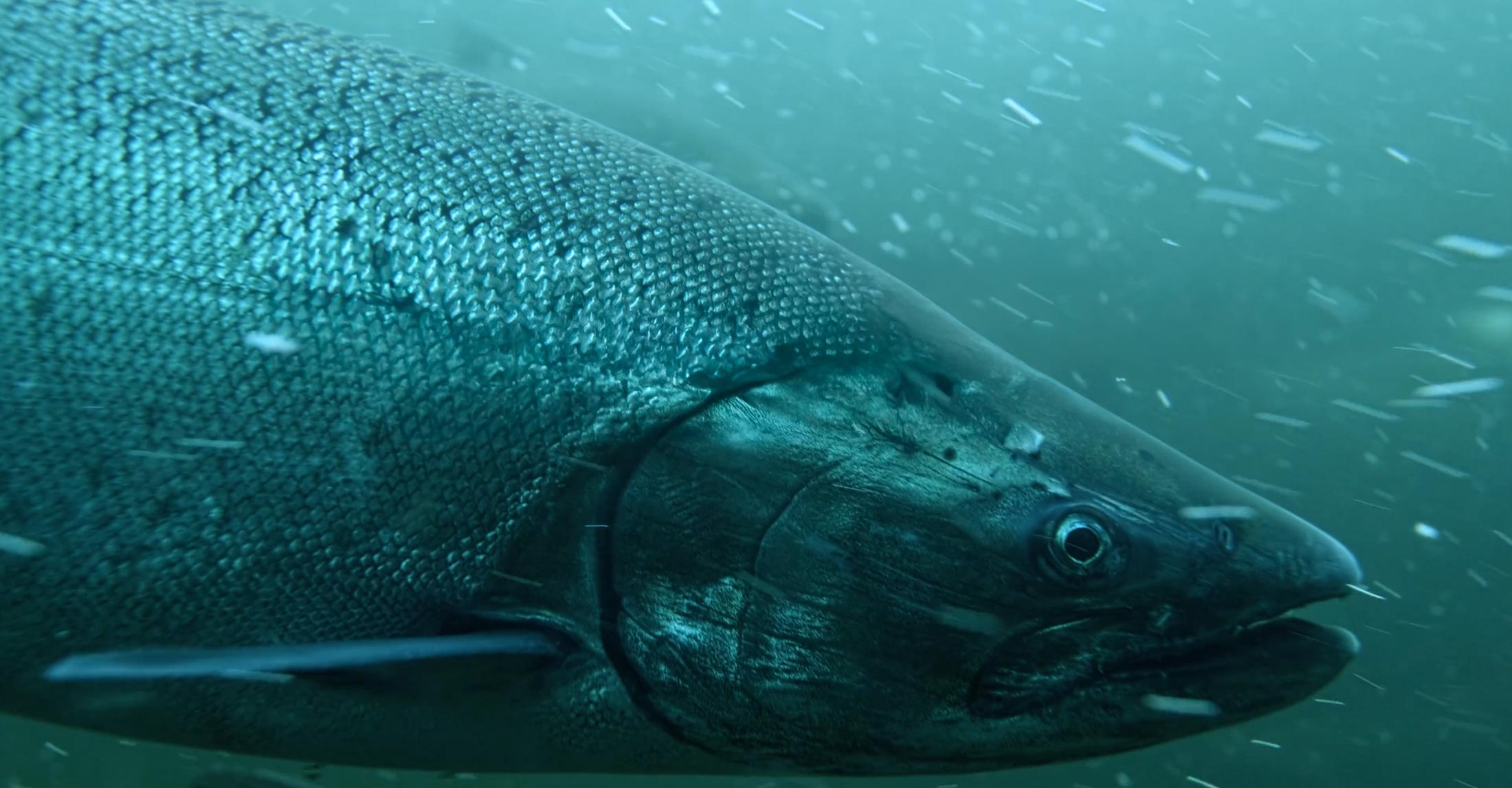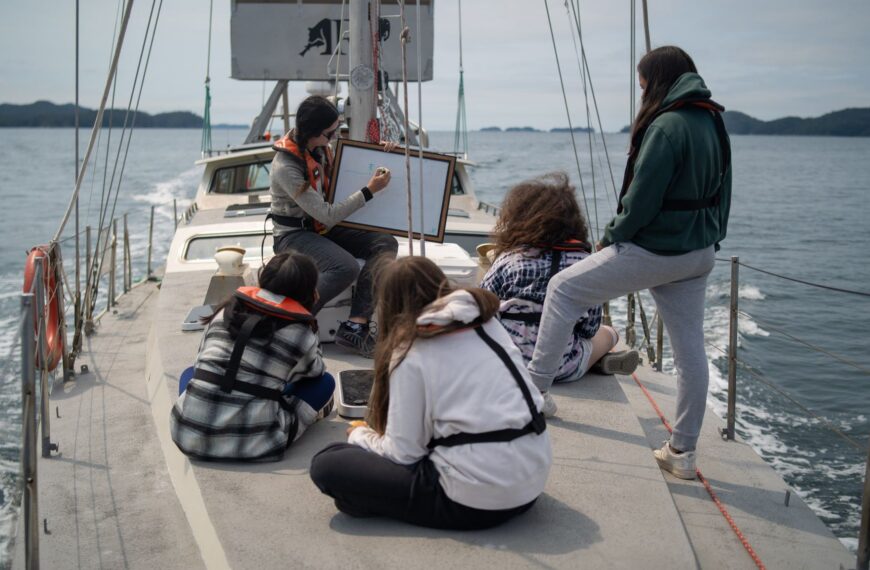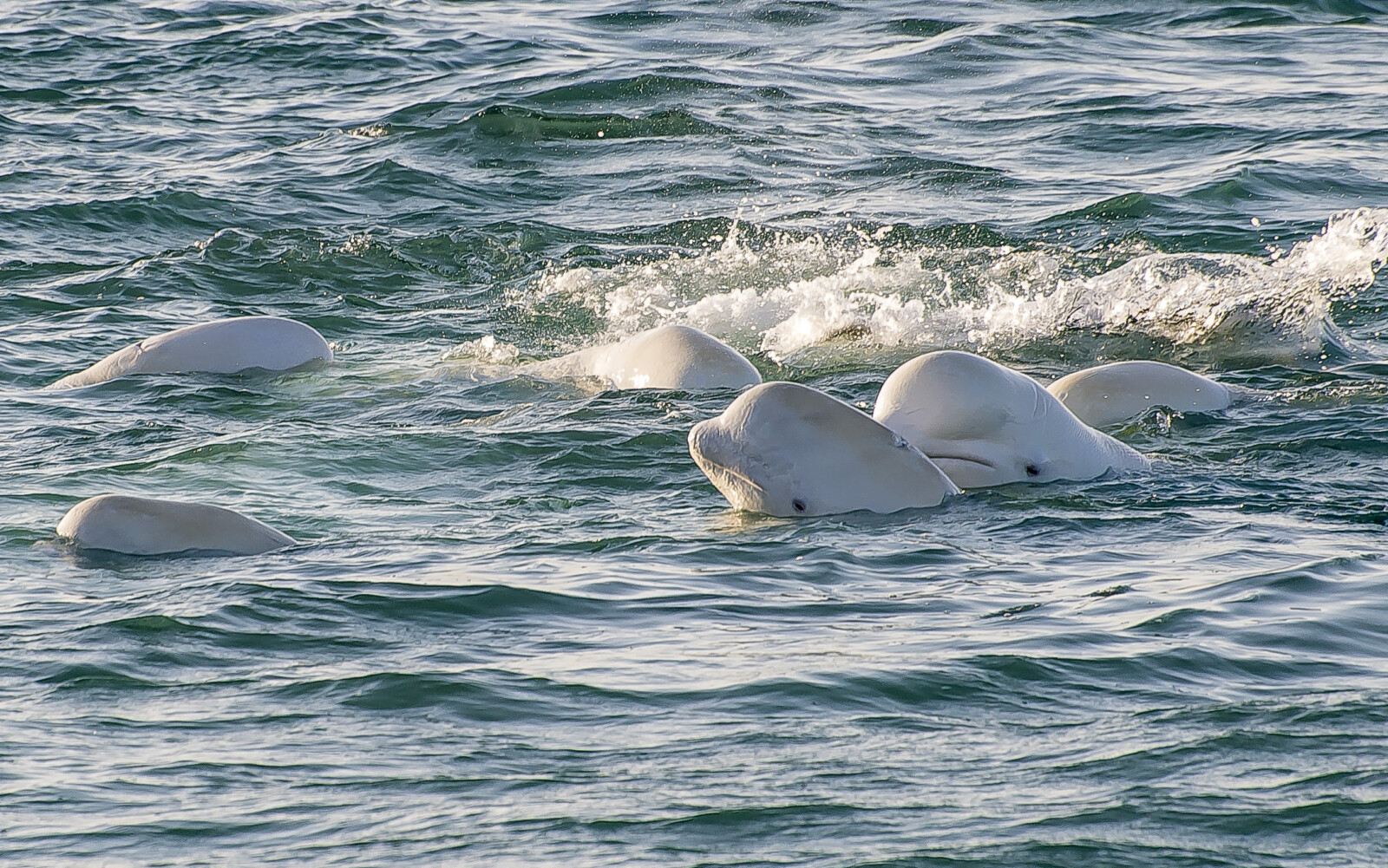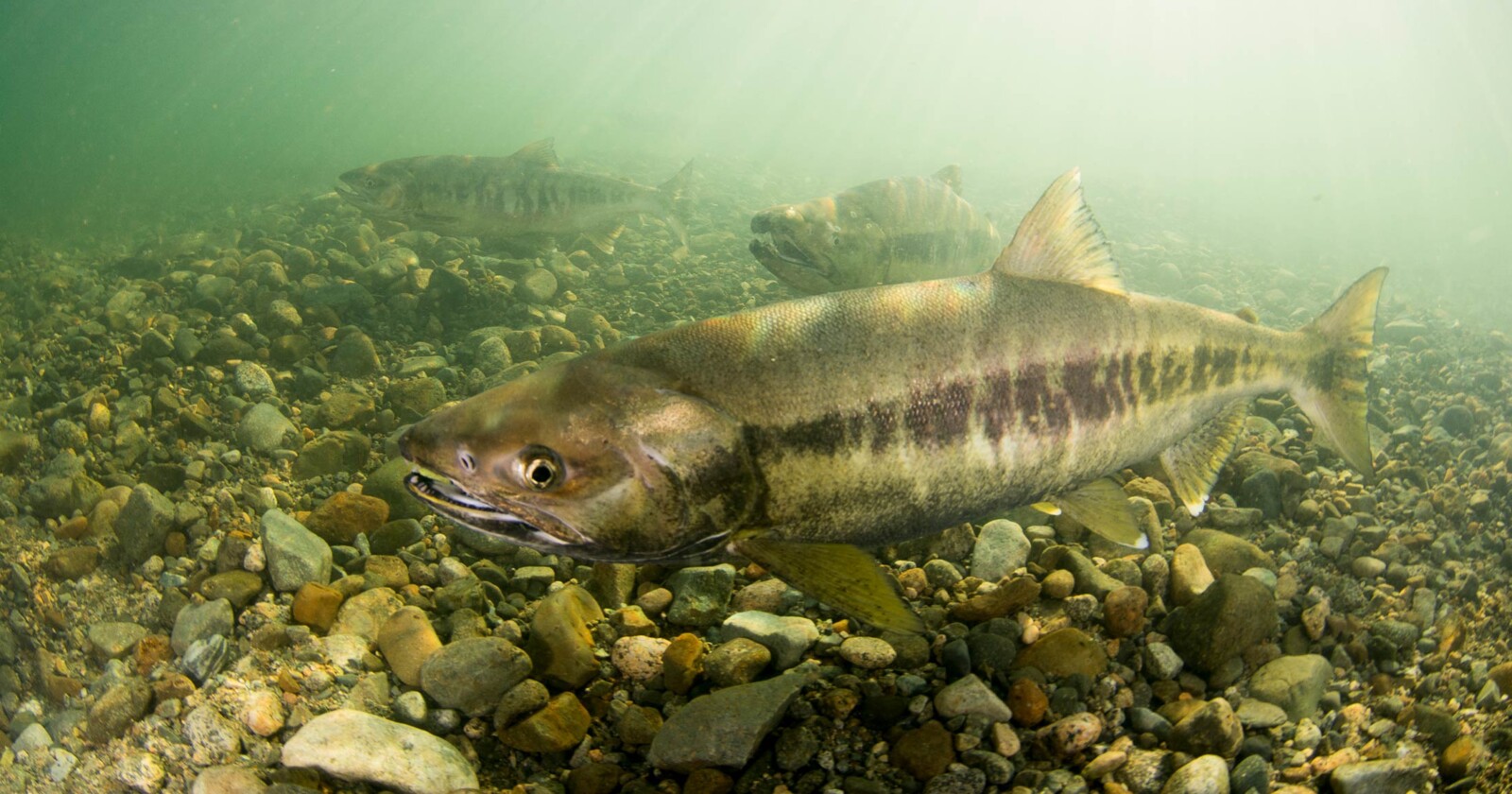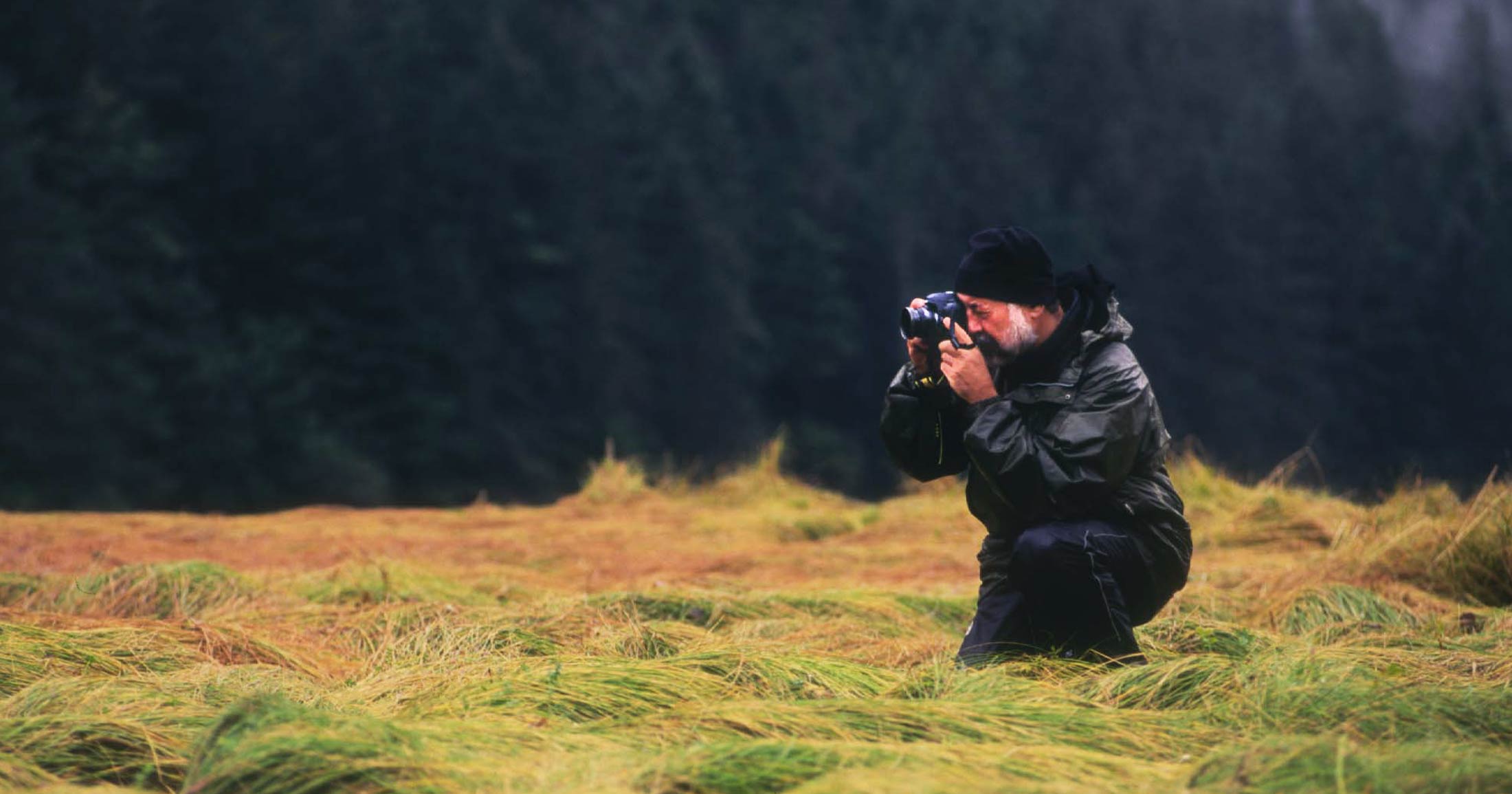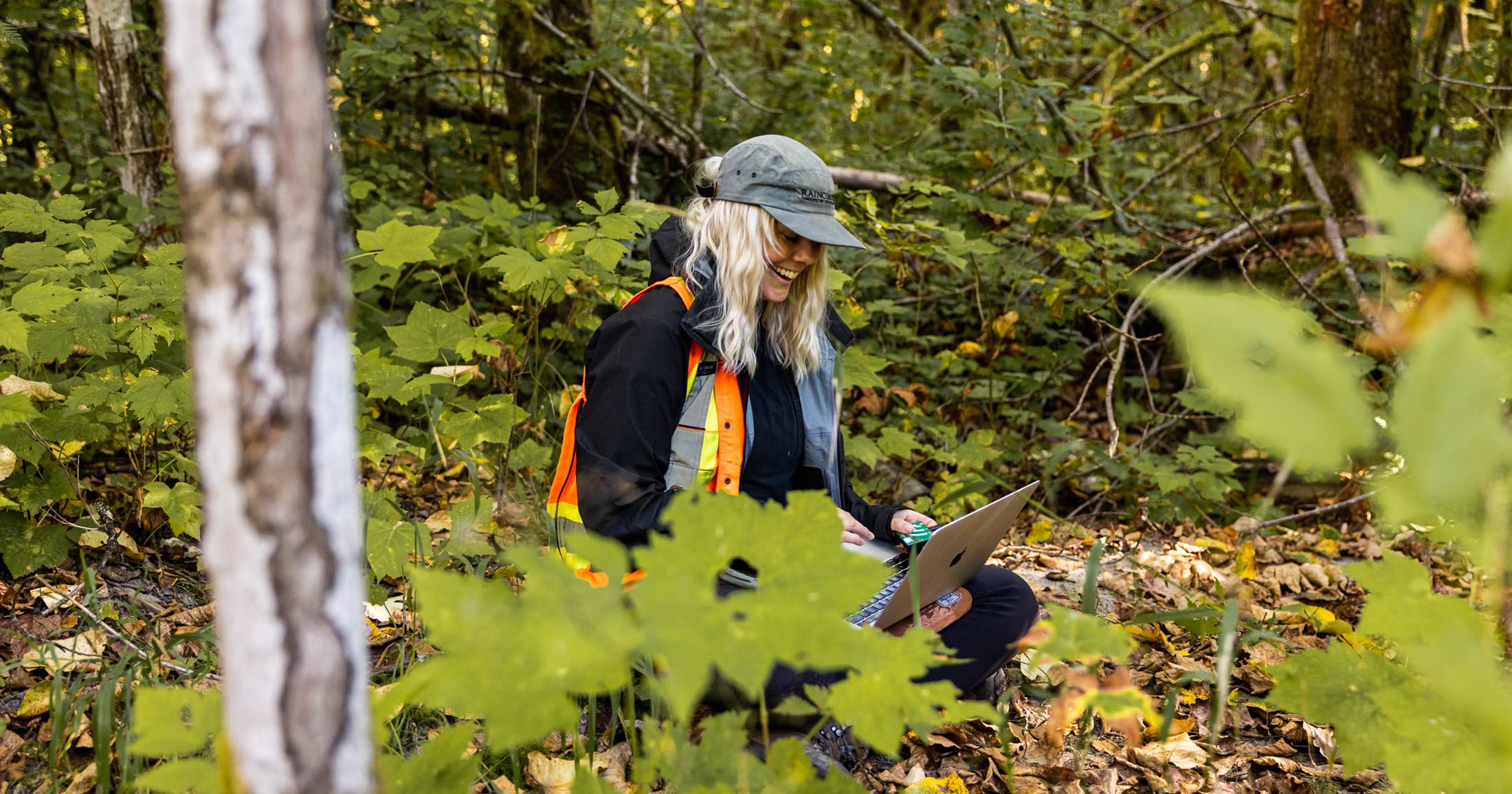Summer employment opportunity (closed)
Join our field work team in the Fraser River estuary.
Are you a biology student looking for a great summer job? Check out Raincoast’s juvenile salmon program in the Fraser Estuary. We are looking to hire two field assistants.
The start date is April 18th. Work will continue until late July or August. The research will be conducted out of Ladner and South Vancouver.
We are seeking two field research assistants to study juvenile salmon ecology in the Fraser River estuary, BC. Duties will consist of assisting Raincoast staff with purse and beach seine and fyke net sampling, fish identification, fish measurements, water chemistry sampling, and other data collection. Days will be long and will involve exposure to the elements and some heavy lifting working from boats or on the shoreline.
The Lower Fraser and estuary is a highly modified environment with more than 70% of tidal marsh habitats lost or locked away behind diking structures. Along with this direct loss of habitat that supported juvenile salmon, the connectivity between the Fraser River and its estuary has also been highly modified. Today, the estuary is highly fragmented with numerous jetties (North Arm, Iona, Steveston) altering the flow of water, sediment and nutrients to Sturgeon and Roberts Banks. Restoring connectivity within the Fraser estuary by addressing these physical barriers will allow increased access for juvenile salmon to delta rearing habitats, enabling their natural migrations during a critical stage before ocean entry, and potentially improving their early marine survival.
This field research program will serve as baseline monitoring prior to future restoration actions and there may be an opportunity for this to lead into a Masters position in the Faculty of Forestry at UBC under Dr. Scott Hinch.
Find out more [icon icon=”arrow-circle-o-right”]
Want to volunteer?
Contact us about volunteering as well. Our fieldwork is generally two weeks of every month and you can join us for a day or a week. We start early so being mainland-based is easier than coming from the island.
Volunteer [icon icon=”arrow-circle-o-right”]
You can help
Raincoast’s in-house scientists, collaborating graduate students, postdoctoral fellows, and professors make us unique among conservation groups. We work with First Nations, academic institutions, government, and other NGOs to build support and inform decisions that protect aquatic and terrestrial ecosystems, and the wildlife that depend on them. We conduct ethically applied, process-oriented, and hypothesis-driven research that has immediate and relevant utility for conservation deliberations and the collective body of scientific knowledge.
We investigate to understand coastal species and processes. We inform by bringing science to decision-makers and communities. We inspire action to protect wildlife and wildlife habitats.



